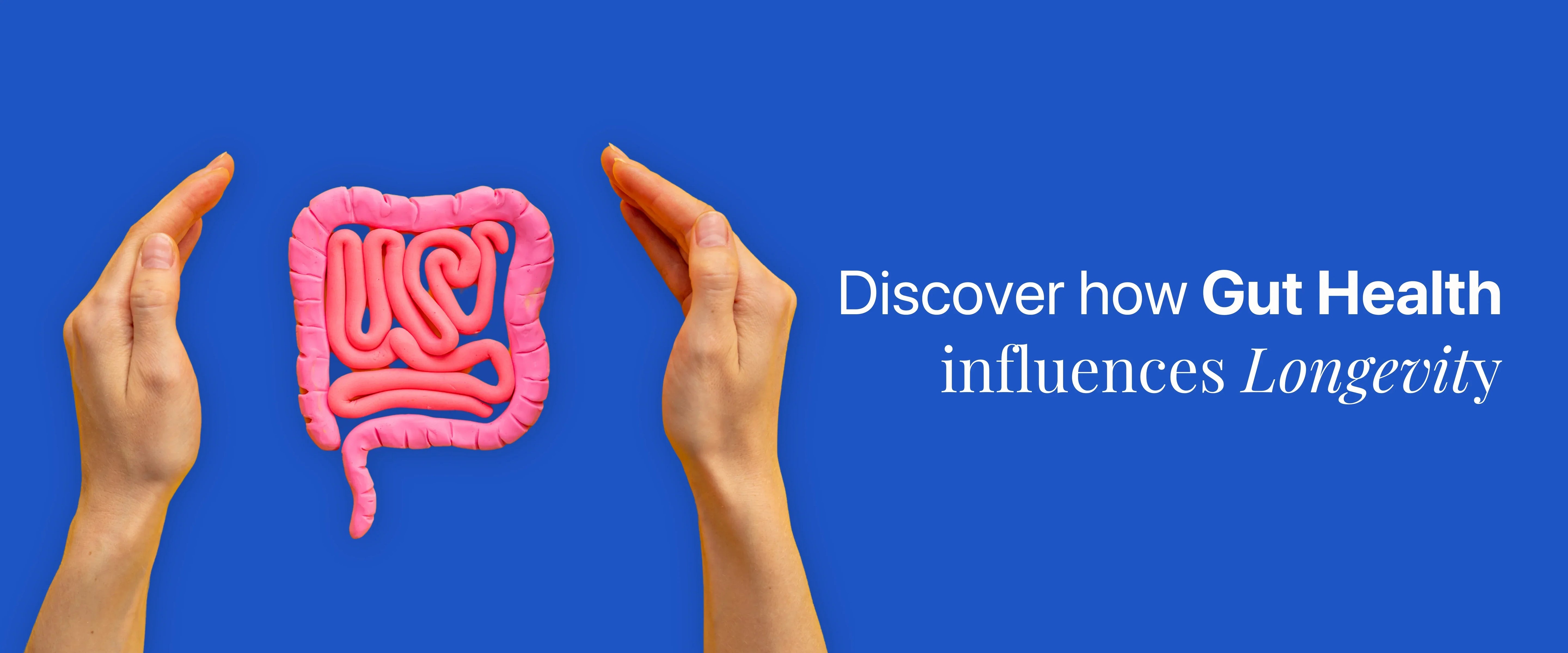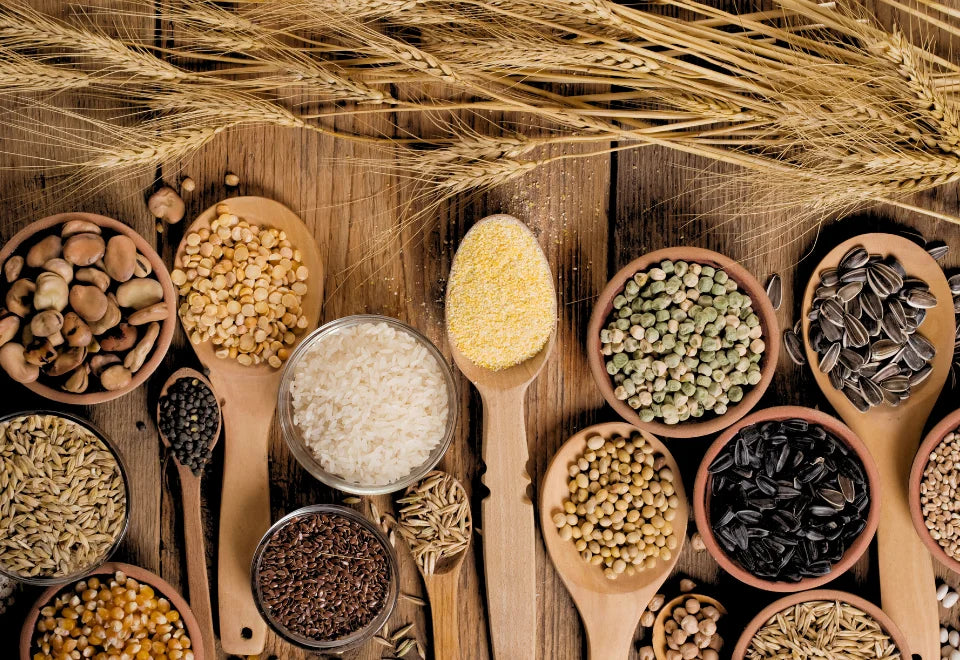As we age, our body undergoes various changes, and one area that often gets overlooked is gut health. By the time we reach 40, our digestive system can begin to experience more challenges, such as slower metabolism, a decrease in gut bacteria diversity, and digestive discomfort. Fortunately, improving gut health is possible at any age with the right strategies. This science-based guide will explore practical steps you can take to promote gut health and maintain optimal digestion after age 40.
- Ageing impacts gut health: After 40, gut microbiome diversity declines, increasing risks of inflammation, nutrient absorption issues, and weakened immunity.
- Top foods for your gut: Eat high-fiber foods (like whole grains, berries, and lentils) and fermented options (like yogurt, kimchi, and sauerkraut) to support healthy bacteria.
- Avoid these: Cut back on processed snacks, sugary drinks, excessive alcohol, and artificial sweeteners.
- Supplements to consider: Probiotics (Bifidobacterium lactis, Lactobacillus rhamnosus), prebiotics (inulin, FOS), and omega-3s can help balance your gut.
- Daily habits matter: Manage stress with mindfulness, exercise regularly, and improve sleep quality for better gut function.
The 5 things you Need to know for better Gut Health
Maintaining good gut health is essential for overall well-being, especially as we age. A healthy gut plays a crucial role in digestion, immunity, and even mental health. However, factors like poor diet, stress, and ageing can negatively impact gut function. To improve and maintain a healthy gut, it's important to focus on key aspects such as supporting a balanced microbiome, eating nutritious diet, staying hydrated, managing stress, and incorporating regular physical activity. Here are the 5 things you need to know to help optimize your gut health and promote better health.
Best Foods for Gut Health
Once you hit 40, your gut health needs extra attention. The diversity and balance of beneficial bacteria in your gut can decline, so making smart dietary choices is key to keeping your digestive system in check.
High-Fiber Foods to Include
Fiber is a must-have for feeding the good bacteria in your gut. Adults over 40 should aim for 25-30 grams of fiber daily. Here are some top sources:
| Food Category | Examples | Why It Helps |
|---|---|---|
| Plant-Based Foods | Whole grains, berries, broccoli, lentils | Promotes digestion and provides varied fiber types |
| Legumes | Chickpeas, beans | Packed with both soluble and insoluble fiber |
Make Fermented Foods a Staple
Fermented foods are packed with live bacteria that can help balance your gut microbiome. Studies show that regularly eating these foods boosts gut diversity in older adults [1], improving digestion, reducing inflammation, and strengthening your immune system.
Some great options include:
- Yogurt and Kefir: Loaded with various probiotic strains.
- Sauerkraut and Kimchi: Offer probiotics, fiber, and anti-inflammatory benefits.
- Kombucha: Delivers probiotics along with antioxidants.
"Age-related changes in the gut microbiome are linked to healthy ageing and longevity." - NIA-supported research, Nature Metabolism
Foods to Cut Back On
Certain foods can throw off your gut's balance and lead to inflammation [2]. Watch out for:
- Processed snacks and sugary drinks
- Excessive alcohol
- Artificial sweeteners
To improve gut health, gradually add more fiber-rich and fermented foods while cutting back on processed items. This gradual shift can help you avoid digestive discomfort and make the changes easier to stick with.
And while food is the cornerstone of gut health, supplements can also play a role in supporting your microbiome.
Key Supplements for Gut Health
After age 40, supplements can be a helpful addition to a balanced diet to support gut and immune health. While a nutritious diet remains the cornerstone, supplements can address specific gut-related changes that come with ageing.
Probiotics and Prebiotics
When selecting probiotic supplements, look for strains that research suggests are effective for older adults:
| Probiotic Strain | Benefits | Suggested Daily Dose |
|---|---|---|
| Bifidobacterium lactis | Strengthens gut barrier, reduces inflammation | 5-10 billion |
| Lactobacillus rhamnosus | Boosts immune response, aids digestion | 1-10 billion |
| Lactobacillus acidophilus | Improves nutrient absorption; eases discomfort | 1-10 billion |
Prebiotics, like inulin and FOS, fuel the growth of beneficial gut bacteria, especially if your diet lacks sufficient fiber. Popular prebiotic options include:
- Inulin: Encourages Bifidobacteria growth.
- FOS (Fructooligosaccharides): Enhances mineral absorption.
- GOS (Galactooligosaccharides): Promotes the growth of healthy gut bacteria.
Start with a small dose of prebiotics and take them with meals to minimize bloating or gas as your body adjusts.
Other Useful Supplements
- Digestive enzymes: Help your body absorb nutrients more efficiently when taken with meals.
- Omega-3 fatty acids: Reduce inflammation and support intestinal health.
- Polyphenols: Found in green tea or berry extracts, these compounds protect the gut lining and encourage the growth of good bacteria.
If you're thinking about adding supplements to your routine, talk to a healthcare provider first - especially if you take medications or have existing health issues. Some supplements may interact with drugs like blood thinners or immunosuppressants. Always choose products from trusted brands that meet FDA and GMP standards to ensure quality and safety.
sbb-itb-55c436e
Daily Habits for Better Gut Health
Taking care of your gut health after 40 involves more than just changing what you eat. Incorporating specific daily habits can help maintain gut diversity and function as they naturally decline with age.
Managing Stress for Gut Health
The connection between your gut and brain becomes even more critical as you get older. Chronic stress can disrupt your gut flora and digestion, but practices like mindfulness meditation can help improve digestion and reduce inflammation.
| Technique | Time Investment | Gut Health Benefits |
|---|---|---|
| Mindfulness Meditation | 10-15 minutes daily | Calms the gut-brain axis, aids digestion |
| Deep Breathing | 5-10 minutes, 3x/day | Activates the parasympathetic response |
| Gentle Yoga | 20-30 minutes daily | Supports better gut motility |
Exercise and Gut Health
Regular exercise promotes the growth of beneficial bacteria, such as Bifidobacterium and Lactobacillus, in older adults. To support your gut, aim for:
- Moderate aerobic activity: Try brisk walking, swimming, or cycling for 30 minutes, five days a week.
- Resistance training: Focus on major muscle groups with 2-3 sessions per week.
- Flexibility work: Incorporate daily stretching or yoga to aid digestion.
Effect of Sleep on Gut Health
Quality sleep plays a key role in gut health by increasing the production of short-chain fatty acids, which are essential for a healthy gut. To improve your sleep:
- Stick to a consistent sleep schedule.
- Keep your bedroom cool and dark (65-68°F/18-20°C).
- Minimize screen time before bed.
"Even short periods of mindfulness practice can reduce stress and improve gut health", according to research from the Journal of Gastroenterology.
Focus on consistency rather than perfection. Start small and gradually work these habits into your routine. If digestive issues persist despite these changes, consult a healthcare provider for tailored advice [3].
Tracking your progress can help ensure you're moving in the right direction for better gut health.
Tracking Your Gut Health Progress
Keeping an eye on your gut health after 40 means paying attention to specific signs and regularly checking in on how you're feeling.
Measuring Gut Health Progress
Here are some key areas to monitor when tracking your gut health:
| Indicator | What to Monitor | Positive Signs |
|---|---|---|
| Digestion | Bowel movements, bloating | Regular movements, less bloating and gas |
| Energy Levels | Daily energy | Consistent energy throughout the day |
| Sleep Quality | Sleep patterns | More restful, uninterrupted sleep |
| Mood | Emotional state | Clearer thinking and a better mood |
Use a journal or an app to log these changes. Improvements in your gut's microbiome diversity often align with better overall health, such as reduced inflammation.
When to See a Doctor
Not all changes in digestion are harmless. Some symptoms need immediate medical attention, including:
- Ongoing abdominal pain lasting several days
- Severe diarrhea or constipation that doesn’t improve
- Blood in stool or black, tar-like stool
- Unexplained weight loss of 5% or more of your body weight
- Chronic fatigue that persists even with enough rest
If these symptoms show up, reach out to a healthcare provider. Gut health tests can also help uncover potential issues if problems persist.
Getting a Gut Health Test
Gut health tests can give you a detailed look at your microbiome. When choosing a test, pay attention to these factors:
| Factor | What to Look For |
|---|---|
| Test Details | Types of bacteria and species analyzed |
| Result Clarity | Easy-to-understand results and recommendations |
| Scientific Basis | Backed by reliable research |
| Support Options | Access to healthcare professionals for guidance |
Consider testing your microbiome once a year or more often if you’re dealing with specific concerns. Keep your focus on steady improvement and work with professionals to tweak your plan as needed.
Conclusion: Long-term Gut Health After 40
Improving gut health after age 40 is not only achievable but also essential for maintaining digestive comfort and overall well-being. By adopting a diet rich in fiber, probiotics, and prebiotics, staying hydrated, exercising regularly, and managing stress, you can support your gut microbiome and prevent common digestive issues associated with ageing. Making these science-backed lifestyle changes will help you maintain optimal digestion, boost your immune system, and enjoy better health for years to come.
FAQs
How can I tell if my gut health is deteriorating as I age?
Common signs of declining gut health include bloating, irregular bowel movements, digestive discomfort, low energy levels, and trouble sleeping. If you notice these symptoms regularly, it could be a sign that your gut health needs attention.
Can probiotics really improve gut health after 40?
Yes, probiotics can help balance your gut microbiome by increasing the number of beneficial bacteria. Strains like Bifidobacterium lactis and Lactobacillus rhamnosus have been shown to support digestion and immune health, especially as we age.
Are fermented foods necessary for gut health?
Fermented foods like yogurt, kimchi, and kefir provide beneficial bacteria that support gut health. They can help improve digestion, reduce inflammation, and promote a healthy balance of gut bacteria, making them especially beneficial after age 40.
What are the best foods to support gut health after 40?
Fiber-rich foods like whole grains, lentils, and berries are great for supporting gut health. Fermented foods like yogurt, kefir, and kimchi also promote gut microbiome diversity and help with digestion.
Can I rely solely on supplements to improve my gut health?
While supplements like probiotics, prebiotics, and digestive enzymes can support gut health, they work best when combined with a healthy diet and lifestyle. Focus on a fiber-rich diet, hydration, and regular exercise for optimal results.
Is it important to track my gut health progress?
Tracking your gut health progress can help you stay on top of changes in digestion, energy levels, and overall well-being. Regularly monitoring your symptoms and improvement can guide you in adjusting your habits for better results.
























Leave a comment
All comments are moderated before being published.
This site is protected by hCaptcha and the hCaptcha Privacy Policy and Terms of Service apply.